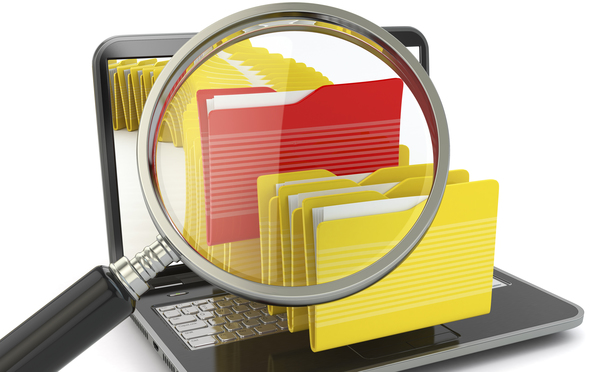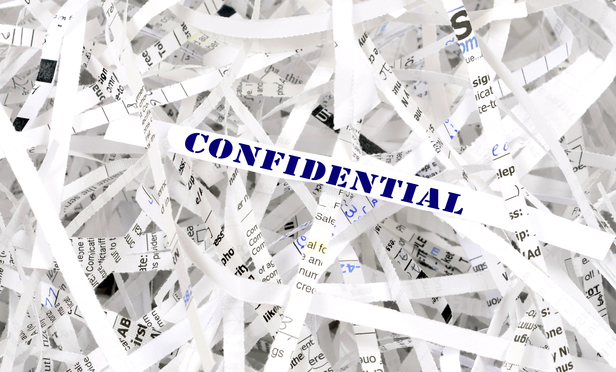Laura Kibbe

January 08, 2015 | New Jersey Law Journal
Understanding Ethics and Obligations Regarding Global Big DataAttorneys must understand their obligations and establish defensible processes to demonstrate their competence in today's world of Big Data and outsourcing IT infrastructure.
By Tara Lawler and Laura Kibbe
8 minute read

January 08, 2015 | New Jersey Law Journal
Understanding Ethics and Obligations Regarding Global Big DataAttorneys must understand their obligations and establish defensible processes to demonstrate their competence in today's world of Big Data and outsourcing IT infrastructure.
By Tara Lawler and Laura Kibbe
8 minute read

January 07, 2015 | The Legal Intelligencer
Understanding Ethics and Obligations Regarding Global Big DataIt is a basic tenet of professional responsibility that lawyers obtain sufficient proficiency to ensure competent representation of their clients. The challenge in today's world of Big Data and corporate globalization and outsourcing of IT infrastructure is that the level of technological proficiency required is not always clear. Understanding your obligations and establishing defensible processes will be necessary to fully demonstrate competence in discovery should an issue arise.
By Tara Lawler and Laura Kibbe
8 minute read

January 06, 2015 | The Legal Intelligencer
Understanding Ethics and Obligations Regarding Global Big DataIt is a basic tenet of professional responsibility that lawyers obtain sufficient proficiency to ensure competent representation of their clients. The challenge in today's world of Big Data and corporate globalization and outsourcing of IT infrastructure is that the level of technological proficiency required is not always clear. Understanding your obligations and establishing defensible processes will be necessary to fully demonstrate competence in discovery should an issue arise.
By Tara Lawler and Laura Kibbe
8 minute read

September 24, 2014 | The Legal Intelligencer
When Information Governance and Data Privacy CollideThe so-called "Big Data" problem has caused many organizations to breathe new life into their record-retention programs. A whole new discipline—information governance—has emerged as a framework to govern the creation, use, retention and disposition of information, as well as the technical platforms on which the information resides. While storage may still be cheap, with the ever-increasing data volumes, even traditional infrastructure organization is being challenged. As a result, more multinational corporations are moving to the cloud as a cost-savings mechanism for everything from email to database storage and document creation, such as Google Docs. In addition, while corporate IT may have been driven by a goal to decentralize over the past several years, the current trend toward centralization of company information to achieve cost savings carries the day today. This all sounds like a great first step in an organization's attempt to get its hand around its own Big Data issues. But what happens when what makes the most business sense might actually be putting the company at risk?
By Laura Kibbe and Tara Lawler
7 minute read

July 02, 2014 | The Legal Intelligencer
Using Technology for Successful Information GovernanceMost organizations have exploding volumes of data scattered throughout the company in various data sources: email, hard drives, shared drives, SharePoint, structured databases, wikis and the cloud.
By Tess Blair, Tara Lawler and Laura Kibbe
4 minute read
August 15, 2013 | New Jersey Law Journal
There's More to TAR Than LitigationTechnology-assisted review is a tool that can be applied not just reactively in a document-production context, but also for risk assessment purposes.
By Laura Kibbe
6 minute read

August 13, 2013 | Legaltech News
There's More to TAR Than LitigationThere's more to TAR than litigation. Proactive use of technology-assisted review could help Pharma and other industries manage risk.
By Laura Kibbe
6 minute read
Trending Stories
- 1Judge Denies Sean Combs Third Bail Bid, Citing Community Safety
- 2Republican FTC Commissioner: 'The Time for Rulemaking by the Biden-Harris FTC Is Over'
- 3NY Appellate Panel Cites Student's Disciplinary History While Sending Negligence Claim Against School District to Trial
- 4A Meta DIG and Its Nvidia Implications
- 5Deception or Coercion? California Supreme Court Grants Review in Jailhouse Confession Case
More from ALM
- Legal Speak at General Counsel Conference East 2024: Match Group's Katie Dugan & Herrick's Carol Goodman 1 minute read
- Legal Speak at General Counsel Conference East 2024: Eric Wall, Executive VP, Syllo 1 minute read
- Legal Speak at General Counsel Conference East 2024: Virginia Griffith, Director of Business Development at OutsideGC 1 minute read



